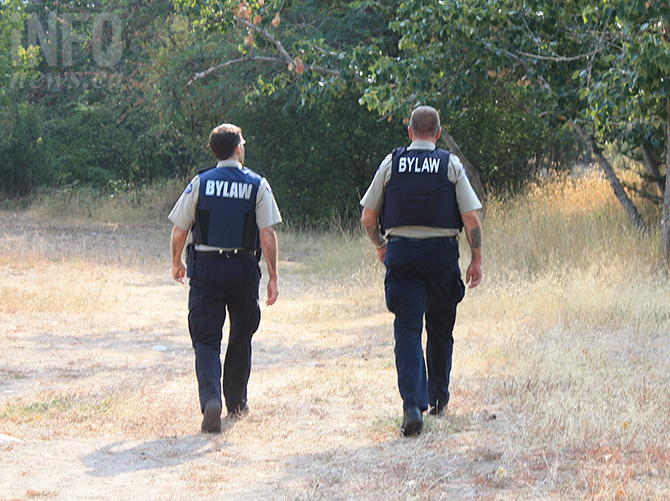Elevate your local knowledge
Sign up for the iNFOnews newsletter today!
Sign up for the iNFOnews newsletter today!
Selecting your primary region ensures you get the stories that matter to you first.

A proposed Penticton bylaw is focused on improving public safety by imposing fines for panhandling, racial discrimination in public spaces and other “public nuisances.”
At the meeting tomorrow, Nov. 4, the city council is going to hear about the Safe Public Places bylaw that would impose a $500 fine for discriminatory harassment, various fines for soliciting, or asking for money, and “disorderly conduct.”
“This bylaw is rooted in our commitment to fostering inclusive, respectful public spaces where everyone feels safe and included. Discriminatory harassment undermines that sense of belonging,” the city’s general manager for public safety Julie Czeck said in a press release.
“This bylaw gives us a fair and locally grounded way to address harmful behaviours and uphold the dignity and safety of all community members.”
The bylaw is meant to give RCMP the power to deal with things that aren’t technically a crime, but the city considers to be a public nuisance.
The discriminatory harassment is meant to combat harassment that doesn’t meet the criminal definition.
The city’s definition of discriminatory harassment includes: “The use of any words or conduct in relation to a person’s indigenous identity, race, colour, ancestry, place of origin, religion, marital status, family status, physical or mental disability, sex, sexual orientation, gender identity or expression, that could reasonably cause offence or humiliation, demean a person, or otherwise detrimentally affect a person’s use of a public place.”
On top of the $500 fine for discriminatory harassment there would be a $30 fine for soliciting in certain places, like within a metre of a store without permission, within five metres of a bus stop, ATM and entrance to a park.
There would also be a fine for asking for money from people in a vehicle and for walking up to a group of people to ask for money.
The bylaw is also meant to make it easier for bylaw or RCMP officers to deal with people loitering in public washrooms, using drugs in public, urinating in public and abandoning personal belongings in public areas.
A city staff report said that there aren’t any comparable bylaws like this one in B.C., but Calgary and the town of Outlook in Saskatchewan have bylaws that allow for public safety enforcement to be more spread out between the RCMP and bylaw officers in a tiered policing model.
News from © iNFOnews.ca, . All rights reserved.
This material may not be published, broadcast, rewritten or redistributed.

This site is protected by reCAPTCHA and the Google Privacy Policy and Terms of Service apply.
Want to share your thoughts, add context, or connect with others in your community?
You must be logged in to post a comment.